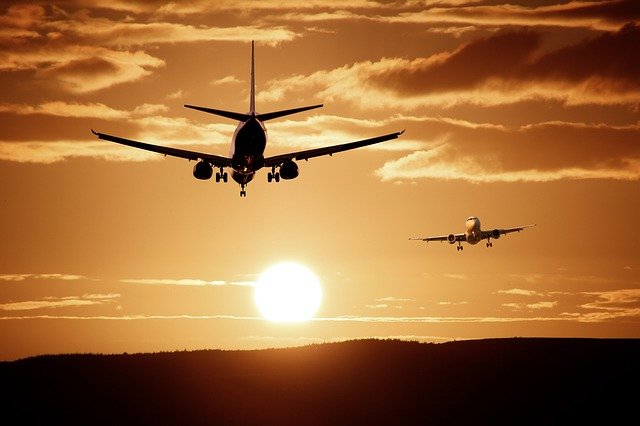 Did you know that 1.8 billion people traveled by plane in 2020! This is down by 60% compared to 2019 due to the effects of the pandemic.
Did you know that 1.8 billion people traveled by plane in 2020! This is down by 60% compared to 2019 due to the effects of the pandemic.
But 1.8 billion still seems like a high number, especially considering the amount of greenhouse gases emitted by planes.
Indeed, airplanes today run mostly on fossil fuels which release high amounts of carbon dioxide (CO2) into the air. Greenhouse gases like CO2 trap heat in the atmosphere and contribute heavily to global warming.
So what’s being done about the greenhouse gases generated by aviation? Some believe that people should fly less overall to mitigate the damage. To them, frequent flyers should be taxed to discourage excessive air travel.
Another alternative that’s being explored is the use of greener jet fuel for planes, which could reduce the aviation industry’s carbon footprint by 165%.
What Does a Greener Jet Fuel Look Like?
 Researchers have been trying to find a way to power planes on greener jet fuel using wet waste.
Researchers have been trying to find a way to power planes on greener jet fuel using wet waste.
Wet waste, which includes food scraps and animal manure, is usually high in energy. In landfills, this type of waste typically decomposes due to methane-producing bacteria, thus generating methane gas (another dangerous greenhouse gas).
However, researchers have recently shown that this waste can be converted into volatile fatty acids (VFAs), a set of compounds that can be upgraded to create greener jet fuel.
In this process, VFAs can be turned into two types of sustainable paraffin (a wax used for fuel) through a form of catalytic conversion. In catalytic conversion, heavy fuels are turned into lighter fuels through the use of catalysts.
The two types of paraffin are then combined with regular jet fuel, with the mixture containing 70% of the new fuel, making it overall cleaner for the environment.
Therefore, this new jet fuel reduces not only CO2 emissions generated by planes but also methane emissions that would arise from the food waste being dumped in landfills. It also produces 34% less soot, a black powdery substance generated by the combustion of fossil fuels, and that also contributes to CO2 being trapped in the atmosphere.
 What Are the Challenges?
What Are the Challenges?
Greener jet fuel has important environmental benefits, but it is also costly and could make air travel more expensive.
Others argue that there isn't enough viable wet waste available to replace traditional aviation fuel. And with stricter landfill regulations and alternative food waste disposal methods, such as composting, becoming more popular, the quantities will only decrease further.
Despite these challenges, the development of a green jet fuel jet is a step in the right direction in the fight against global warming. For this reason, researchers and scientists have been working to find ways to make greener energy more affordable. Hopefully, this means the use of cleaner energy sources will become more widespread in the future.
Sources: BBC, Singularityhub, Statista, Chicago Tribune








